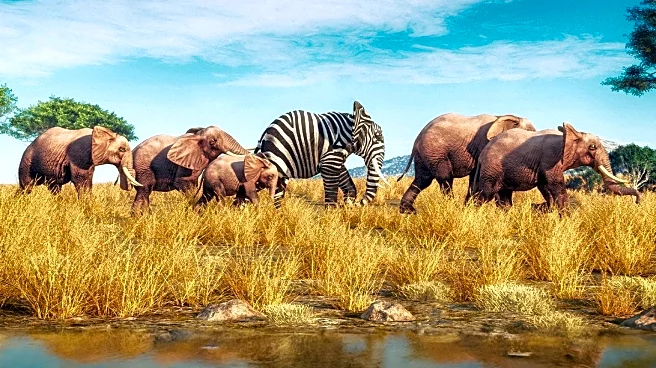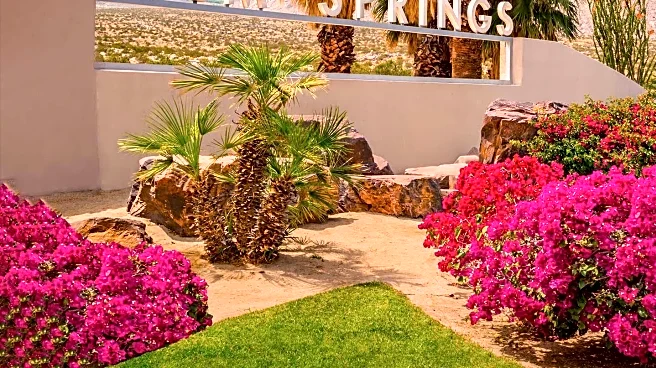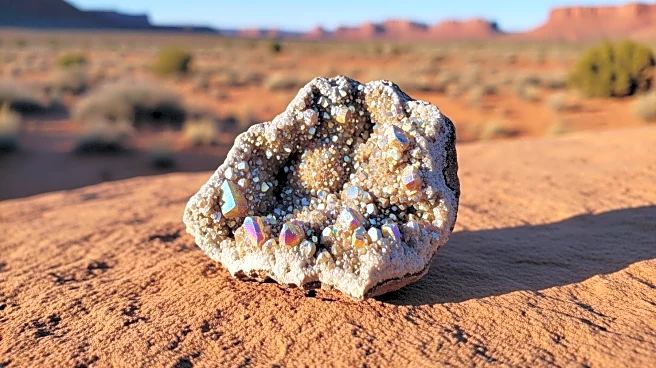What's Happening?
Chris Fallows, renowned for his 'Air Jaws' photography, is spearheading a rewilding initiative in Africa. After witnessing the decline of great white sharks in False Bay, South Africa, Fallows and his wife Monique shifted their conservation efforts to land. They purchased 25 hectares of land in Cape Infanta, South Africa, using proceeds from Fallows' photography sales. The land, once overrun by non-native species, has been transformed into a thriving ecosystem supporting native wildlife. Inspired by their success, neighboring landowners have joined the effort, expanding the conserved area significantly. Fallows is now working on acquiring a large property in Namibia to create one of Africa's largest privately owned wildlife reserves, aiming to restore natural migration corridors and reintroduce native species.
Why It's Important?
Fallows' rewilding project highlights the potential for private conservation efforts to make significant ecological impacts. By restoring native habitats, these initiatives can support biodiversity, combat climate change, and preserve endangered species. The project also demonstrates the role of individual and community action in environmental conservation, offering a model for similar efforts worldwide. The expansion of conserved land in Africa could have far-reaching effects on regional ecosystems, potentially reversing some of the damage caused by human activity. This initiative underscores the importance of sustainable practices and the need for collaborative efforts in addressing global environmental challenges.
What's Next?
Fallows plans to continue expanding the rewilding project, with the goal of creating extensive wildlife corridors in Namibia. This ambitious plan involves collaboration with local organizations and neighboring landowners to establish a vast conservation area. The success of this initiative could inspire further rewilding projects across the continent, contributing to the preservation of Africa's unique biodiversity. As the project progresses, it will be crucial to monitor its ecological impact and engage with local communities to ensure sustainable development and support for conservation efforts.









